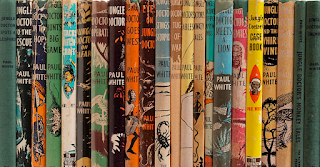New York Times bestseller! Go, Ellie Marney! One of Australia's very best YA authors, Marney produced a ripping mystery trilogy with her Every series, which I absolutely gulped down, and None Shall Sleep raises her bar still higher.
This book came out in 2020 but I must confess I was put off by the cover, which I think is... not great? But the words inside are brilliant. Marney acknowledges being a Mindhunter fan, and I also really loved the Netflix series and was hugely disappointed to learn that it hadn't been renewed after two seasons. Mindhunter was set in the earliest days of the Behavioural Science Unit of the FBI, when psychologists were first being employed to track 'multiple murders', better known now as serial killers. None Shall Sleep takes us into the FBI a few years later, to 1982, with a YA twist -- two teenagers, both survivors of trauma at the hands of a killer, are recruited to help the FBI gain some insight into young serial murderers.
I keep saying that I don't like horror, I don't like gore, and yet I seem to keep reading gory horror stories... None Shall Sleep gripped me from start to finish. There are shades of Hannibal Lecter and Clarice Starling's relationship in Emma and Simon's interactions, but they are very much their own characters. Marney is careful not to slip into horror porn with her descriptions of the repugnant actions of her killers -- the scenes are clearly horrific, but never explicit. Still, squeamish me wouldn't like to see any of this stuff on screen! The cover tagline reads 'a captivating and chilling psychological thriller' so I can't say I wasn't warned.
Gee, this was good.



























